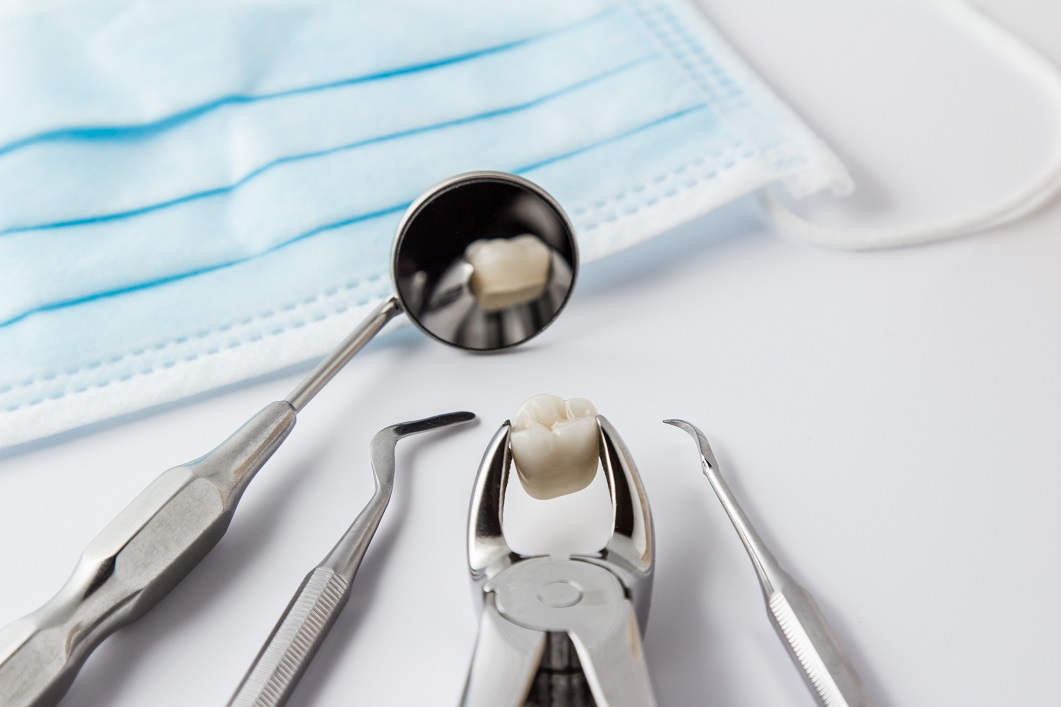
Post-Operative Talk: Wisdom Tooth Extraction
The removal of impacted teeth is a serious surgical procedure. Post-operative care is very important. Unnecessary pain and the complications of infection and swelling can be minimized if the instructions are followed carefully.
IMMEDIATELY FOLLOWING SURGERY
- Firmly hold the gauze packing placed over the surgical area in place for three hours. Do not change packing.
- Apply ice against the side of your face near extraction site for three hours. Follow the pattern of 10 minutes on, 5 minutes off during the duration of the three hours.
FIRST 24 HOURS
- Eat nothing but a cold liquid diet. No straws.
- Rest. Limit any vigorous or physical activity. Sit-up or lay down with head slightly elevated.
- Do not rinse, swish or spit.
- Do not smoke.
After 24 Hours
- Exercise Mouth. Open mouth 100% first thing in the morning and repeat every 30 minutes for one full day.
- Rinse mouth with warm salt water (one teaspoon of salt to 8 oz. warm water). Repeat once each hour.
- If sutures were used, return in 5-7 days to have them removed.
- Eat like normal, use caution around surgical site.
- Physical activity can return to normal.
BLEEDING
Some bleeding is expected after tooth extractions. It’s important for a blood clot to form to stop the bleeding and begin the healing process. If bleeding continues after three hours, moisten a tea bag with cold water and bite down for 30 minutes. The tannic acid in the tea bag helps to form a clot. A small amount of bleeding can continue intermittently for a couple of days especially if the area is stimulated by movement. After the blood clot forms, it is important not to disturb or dislodge it.
SWELLING
Swelling is also a normal part of post-operative healing and can increase for 2-3 days following surgery. Applying an ice pack immediately following surgery will help minimize pain and swelling during this time.
MEDICATION
You should begin taking pain medicine as soon as your feel the local anesthetic start wearing off. For mild to moderate pain, ibuprofen may be taken according to package instructions. If needed, you may alternate with Tylenol. If an antibiotic was prescribed, make sure to take as directed and until completely gone to help prevent infection. For children, use over-the-counter Children’s Tylenol or ibuprofen as directed per instructions on the bottle as needed for pain.
ORAL HYGIENE
Good oral hygiene is essential for healing. Continue brushing and flossing your teeth, avoiding the surgical site initially.
OTHER COMPLICATIONS
- Numbness. If persistent numbness of the lip, chin, or tongue occurs, there is no cause for alarm. As explained prior to surgery, this is almost always temporary in nature. It may persist for a few days to several months but rarely is permanent. Should numbness or altered sensation continue after the first 24 hours, please notify our office.
- Bruising. In some cases, discoloration of the skin follows swelling. The development of black, blue, green or yellow discoloration is a normal post-operative occurrence, which may present 2-3 days postoperatively.
- Fever. A slight elevation of temperature immediately following surgery is not uncommon. Remember to drink plenty of fluids. If an elevated temperature persists or fever develops, please notify our office.
- Stiffness. Stiffness of the jaw muscles may occur and cause difficulty when opening your mouth and during chewing for several days following surgery. This is normal and usually resolves on its own in 5-10 days. Warm, moist heat may help.
- Sore Throat. A sore throat and pain when swallowing are not uncommon due to swelling and inflammation near the extraction sites. These issues will subside in 2-3 days.
- Occasionally, patients may feel hard projections in the mouth with your tongue near the surgical site. These are not roots but the bony walls that once supported the tooth. These projections usually smooth out spontaneously. If not, they can be removed or smoothed by your doctor.
- Dry Socket. A dry socket is when the blood clot gets dislodged prematurely from the tooth socket. Symptoms include severe pain at the surgical site unrelieved by pain medications and may even radiate to your ear. This usually occurs several days following surgery. If this occurs, give our office a call. Dry sockets are easily and effectively treated.
